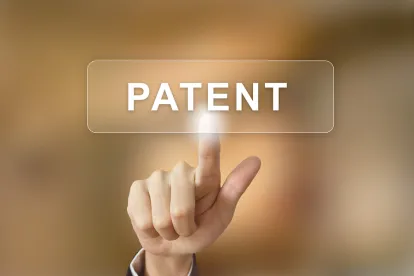On August 23, 2019, the Precedential Opinion Panel (POP) of the Patent Trial and Appeal Board (PTAB) issued a precedential opinion relating to the one-year time bar under 35 U.S.C. § 315(b). The POP held, “service of a pleading asserting a claim of infringement triggers the one-year time period for a petitioner to file a petition under 35 U.S.C. § 315(b), even when the serving party lacks standing to sue or where the pleading is otherwise deficient.” GoPro, Inc. v. 360Heros, Inc., Case IPR2018-01754, Paper 38 at 6 (PTAB Aug. 23, 2019) (precedential) (emphasis added).
On April 13, 2016, GoPro filed a complaint against 360Heros in the Northern District of California. The complaint requested a declaratory judgment of non-infringement of the ’019 patent, among other causes of action. On August 22, 2016, 360Heros filed an answer and a counterclaim alleging infringement of the ’019 patent. The counterclaim was served on GoPro on the same day.
While the California district court case was pending, 360Heros filed a complaint against GoPro alleging infringement of the ’019 patent in the District of Delaware. The complaint there was served on September 18, 2017.
A few months thereafter, on November 14, 2017, the California district court dismissed 360Heros’s counterclaim of infringement of the ’019 patent on a motion for summary judgment for lack of standing.
Subsequently, GoPro filed its Petition requesting an Inter Partes Review (IPR) of the ’019 patent on September 17, 2018, which was less than one year after GoPro was served with 360Heros’s complaint in the Delaware case, but more than one year after GoPro was served with 360Heros’s counterclaim in the California case.
In the Institution Decision, the Board held that the filing of the counterclaim in the California case did not trigger the § 315(b) time bar because “the counterclaim in the California [c]ase was not filed by patentee.” Inst. Dec. at 11.
360Heros subsequently filed a Request for Rehearing on the Board’s decision to institute the petition and requested POP Review of the decision.
In the decision on rehearing, the POP held that the clock for the one-year time bar began to toll once GoPro was sued for infringement of the ’019 patent in the California case even though 360Heros lacked standing to sue when it served its complaint on GoPro. In support of its decision, the POP held that the Federal Circuit’s holding in Click-to-Call Techs., LP v. Ingenio, Inc., 899 F.3d 1321, 1330 (Fed. Cir. 2018) (en banc) regarding § 315(b) is persuasive and applicable here. Specifically, the Federal Circuit observed that the plain language of “served with a complaint” § 315(b) “does not contain any exceptions or exemptions,” “[n]or does it contain any indication that the application of § 315(b) is subject to any subsequent act or ruling.” Click-to-Call at 1330. Next, the Federal Circuit looked to the ordinary and common meanings of “served” and “complaint,” and found that those meanings “confirm that the plain meaning of the phrase ‘served with a complaint’ is ‘presented with a complaint’ or ‘delivered a complaint’ in a manner prescribed by law.” Id.
The Federal Circuit also examined the legislative history of § 315(b) and found that it “further supports the understanding that its time bar concerns only the date on which the complaint was formally served.” Id. at 1331–32.
Based on Click-to-Call, the POP determined that, if service of a pleading asserting infringement occurred “in a manner prescribed by law,” then the one-year time period for a petitioner to file a petition under § 315(b) is triggered on the date of service. The one-year time period is triggered regardless of whether the serving party lacked standing to sue or the pleading was otherwise deficient. Paper 38 at 10.
This is the second decision issued by the newly formed POP which was implemented in September 2018. Under POP Review, a party to a proceeding or member of the Board may recommend POP Review—or a rehearing—of a particular Board decision on an issue of exceptional importance involving policy or procedure. Members of the POP issuing this decision are the Director, Andrei Iancu, the Commissioner of Patents, Andrew Hirshfeld, and the Chief Administrative Patent Judge, Scott R. Boalick.
How this decision impacts you: simply put, once you’ve been served a complaint for patent infringement, it is advised you promptly consider your strategy with respect to a Petition for IPR, even where there is a strong argument that the plaintiff does not have standing to sue. Though lack of standing does not stop the time-bar clock, accused infringers/petitioners should also consider whether there could be a strong showing of gamesmanship by the plaintiff/patent owner as the POP indicated it may revisit the issue if it were to encounter a bad-faith filing.



 />i
/>i
